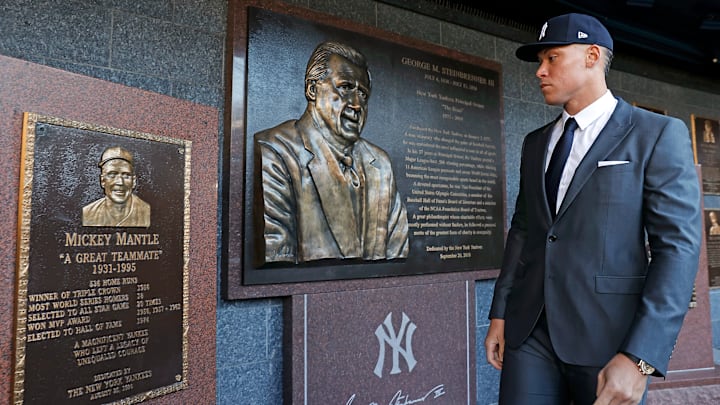Lou Gehrig: 1935-1939
In another strange quirk of history, the eternally dominant 1927 Yankees were actually Captain-free, and the Iron Horse wasn't given the position until late in his career (ironically coinciding with Joe DiMaggio's arrival in 1936, a next-generation star in need of mentorship).
Gehrig, a transcendent star, was actually better than you remember. His lasting legacy may be his tragic end, but as a first baseman, he was without peer, racking up 113.6 WAR over the course of his career while batting .340 with a 179 OPS+.
He was typically great from 1935-37, leading the league with 49 bombs in 1936 and hitting .329, .354, and .351 with OBPs of .466, .478 and .473.
His slippage began the next season, however; he still played in 157 games, but hit "just" .295 with "only" 29 home runs. In 1939, he managed only eight games before his career succumbed to the horrific disease we still have yet to unlock the cure to.
